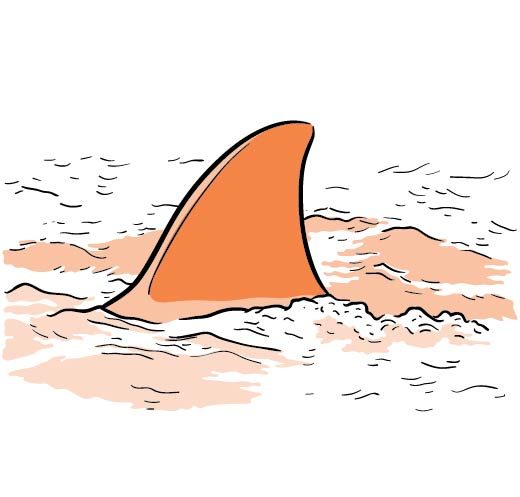When people on the mainland ask me where I’m from and I say “Hawai’i”—pronounced with a sharp ‘okina, the way it’s supposed to be pronounced, not the way mainlanders do, smoothing it out so they don’t trip over it—their eyes always widen, like, Wow. And no matter which of the five or so rotating responses comes next (“I’ve always wanted to go there!” and so on), there’s always, suddenly, a valley between us. On one side is their sense that, by virtue of where I’m from, there’s something special about me. On the other is my sense that they might actually be right about this, but not in the way they think they are; there is something special about growing up in Hawai’i, but I couldn’t even begin to describe it to them in all its distinct richness.
Kawai Strong Washburn’s debut novel, Sharks in the Time of Saviors, speaks out of this valley. The Big Island–born writer fills the chasm with lush, pidgin-laden descriptions of Hawai’i as a place, but also as a culture and a spirit that follows its people for life. For those from Hawai’i, moving to the mainland means that, due to almost a century of escapist mythologizing by Americans, nearly everyone around you will misunderstand the place you’re from—and therefore will likely fundamentally misunderstand you. Washburn’s novel is a corrective to these mischaracterizations, a novel so thoughtfully written that American audiences will realize how not only their understanding of Hawai’i but also their understanding of themselves has been corrupted.
The novel begins with a miracle. When a young Native Hawaiian boy named Nainoa falls off a boat near the coast of the Big Island, a shark returns his body unscathed, gently cradled in its lethal jaws. In Hawaiian culture, some sharks are ‘aumakua—ancestral deities—so the explanation seems clear, albeit incredible: Nainoa has been blessed by the gods.
The Hawai’i that Washburn so vividly describes is swollen with indigenous mythology so that everyday life becomes a fertile ground for ancestral intervention. But Sharks also shrinks the distance between realism and magic: the power of the ‘aina constantly crashes up against the reality of being a disenfranchised indigenous inhabitant of long-stolen land. Just before Nainoa’s encounter with the shark, the sugarcane plantation that employs his father—and most people on their side of the Big Island—shuts down, plunging the family into...
You have reached your article limit
Sign up for a digital subscription and continue reading all new issues, plus our entire archives, for just $1.50/month.
Already a subscriber? Sign in





